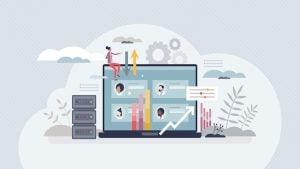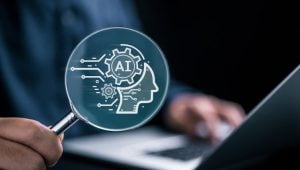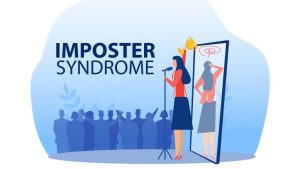The Future of Recruitment: AI and Machine Learning in Talent Acquisition
 Publié le 2 December 2024
Publié le 2 December 2024
Recruiters and hiring managers need to understand the impact of AI and Machine Learning in talent acquisition, and what it means for the future of recruitment.
Artificial intelligence (AI) is the ability of machines or computers to execute tasks that normally require human intelligence, such as language comprehension, image recognition, and decision-making.
Machine learning is an AI technique that trains computers to learn from data. Instead of being programmed with precise instructions, the computer examines data and derives patterns from the data to make conclusions or predictions.
Natural language processing (NLP) is another aspect of AI that enables computers to perceive, interpret, and respond to human language. It helps robots process written or spoken words logically, as humans do. NLP powers chatbots, language translation programs, and voice assistants like Siri and Alexa.
Since this technology appeared on the scene at the beginning of this decade, organizations in every industry and function have tried to take advantage of its benefits, and the recruiting and talent acquisition process is no exception.
Below, we explore the seven uses of AI and machine learning in talent acquisition.
Improve the candidate experience
AI chatbots and virtual assistants improve the candidate experience in practical ways.
For example, they can answer questions about the job or company anytime, even after office hours.
They can automatically schedule interviews, send reminders, and provide updates on the application status.
Research suggests that AI can enhance the hiring process efficiency. 80% of employers using AI tools for scheduling interviews reported a 36% reduction in the time spent rescheduling interviews compared to those performing these tasks manually.
When candidates first apply, AI can do quick screenings by asking simple interview questions about their technical and soft skills and experience.
Plus, they make the process feel more personal by tailoring responses and recommendations to each candidate. This improves candidate engagement, keeps them informed, and reduces waiting times, smoothing the hiring process.
In 2023, the top use of AI in North America was to connect 41% of job seekers with relevant job recommendations on career sites.
Set skilled assessment tests
You can feed AI the job requirements, and it will automatically generate skill assessment tests tailored to the specific needs of the role–and mark them!
For example, if a role requires programming or data analysis expertise, the AI will create coding challenges or problem-solving exercises based on those skills.
This saves time by automating the creation of tests and helps align the test with the job requirements accurately.
Resume scanning
If you’re a big company that attracts hundreds of resumes per job application, AI can give personal attention to each one.
Six seconds isn’t enough time to assess an applicant–let AI take the workload off you. (Image Source)
A recruiter would set predefined criteria that make a candidate potentially job-worthy. This could be based on qualification requirements, years of experience, or skills. It depends on the organization’s definition of the ideal candidate.
Once set, AI will scan each resume for relevant keywords to create a shortlist. The shortlist is based on the predefined criteria. The shortlist of prospective candidates is presented to the recruiting teams for manual review. This way, a human recruiter only spends time assessing applications from qualified candidates.
Remove unintentional bias
AI can help minimize bias as it allows for objective evaluation by analyzing candidate qualifications using data rather than subjective human judgment.
AI technologies can also examine job postings and recommend deleting biased language to attract a more diverse pool of candidates.
AI can further analyze historical HR data to discover diversity patterns, allowing organizations to recognize and rectify potential prejudices.
While there’s a debate on whether AI can completely eliminate bias, many of those working in HR seem confident of its capabilities.
Predicting a candidate’s success
Before AI, the only way to predict a candidate’s success would be by assessing qualifications and professional experience, their job interview answers, and the words of their references.
While these avenues are helpful and should not be abandoned, they are complemented by AI’s ability to ingest vast amounts of data to produce well-rounded talent analytics.
For example, you could train AI to understand what makes an ideal employee using previous model employee data. You’d collect their skills, experience, and performance data to determine the perfect employee.
(Please be realistic! AI’s quality depends on realistic data).
You then take the same information from potential candidates and run their data through the same model, and it’ll tell you how well the candidate matches the perfect employee.
To make things more accurate, use additional information from psychometric tests and even a candidate’s social media feed to determine a behavioral and cultural fit.
The Harris Poll survey found that 71% of hiring managers believe that social media profiles can be an effective tool during the screening process. Having a LinkedIn profile that reflects your work experience would also help.
Automate manual work with API integrations
With the ongoing growth of AI and machine learning in talent acquisition, companies increasingly seek seamless integrations to enhance their recruitment process. One crucial component is integrating an API management gateway, which allows organizations to connect their AI-driven recruitment tools with various platforms efficiently via APIs.
By streamlining data exchanges between job boards, ATS systems, and candidate databases, an API gateway enables recruiters to access real-time insights and automate critical processes like resume parsing and candidate matching. This integration reduces the need for human intervention and accelerates hiring, providing a more efficient and scalable solution for managing high-volume recruitment needs.
Identify high-performing employees
Incorporating AI and machine learning in talent acquisition can help businesses benefit from insights provided by employee time-tracking apps. This includes identifying high-performing employees and work patterns that lead to success.
Machine learning algorithms and softwares can use this information to refine candidate screening, predicting which candidates are most likely to excel based on their work habits and productivity metrics.
By integrating time-tracking data, AI systems can make more informed hiring decisions, improving the accuracy of talent matching and streamlining the recruitment process even further.
Streamline global talent acquisition
With businesses expanding worldwide, ensuring your hiring and personnel management processes can keep up globally has become essential. Fortunately, the rise of AI and machine learning in talent acquisition is helping companies tackle some of those logistical challenges.
Things like automating routine administrative tasks like global payroll and new hire onboarding frees HR teams to focus on the more strategic, high-impact work of finding and attracting top talent, no matter where they might be.
The data-crunching capabilities of these intelligent hiring platforms can give organizations much better visibility into the global talent landscape, helping them make smarter decisions about where to source candidates that fit their needs.
Final thoughts
Recruiters and talent acquisition professionals should embrace AI because it makes hiring more efficient, intelligent, and inclusive. AI can sift through a wide range of applications, perform objective assessments, and eliminate unconscious bias. Using AI, recruiters can make data-driven and informed decisions that save time while selecting better, more qualified candidates, giving them a competitive advantage in the talent acquisition process. With the benefits of AI and machine learning in talent acquisition, it’s clear that these technologies will play a major role in the future of recruitment for companies in all areas.







